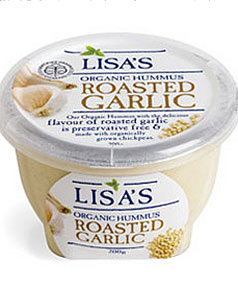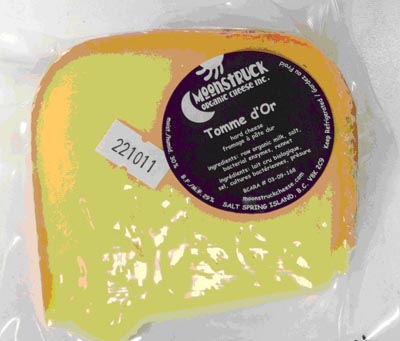Nancy Shute of NPR describes the Jones’ Mock Salt recall as a collision of two distressing trends: contamination of herbs and spices, and safety issues with organic products.
It’s made by June Jones, a hairdresser in Tacoma, Wash., who invented the seasoning a few years ago, after one of customers complained that the salt-free seasonings in the supermarket tasted terrible. Her little start-up has been a success.
But one of the ingredients in Jones’s secret recipe is organic celery seed. And that’s the source of the trouble.
Over the past few months Safeway and other big retailers have recalled organic celery seed because a batch of the seeds positive for salmonella, which can cause fatal infections. No illnesses .jpg) have been reported, but the suspect seeds were distributed from last May through December.
have been reported, but the suspect seeds were distributed from last May through December.
Recalls and outbreaks caused by contaminated herbs and spices are not uncommon. Hundreds of people in 44 states fell ill with salmonella in 2009 and 2010 after eating Italian-style sausage. The culprit was red and black pepper used to season the meat.
We called up June Jones to find out what went wrong. "My supplier actually sent to me a recall letter," she said. "I pulled everything off the shelves in December, and recalled online orders. It’s very hard."
Her business will survive, she says, but she has taken a big hit financially. And she’s worried because most of her customers use salt substitute because they have health problems.
"It was very disturbing to me. I supply to a heart transplant patient in Minnesota," Jones says. "I take every precaution myself as a manufacturer to make sure my product is totally safe, and I expect other people do to that, too."
Because spices can be contaminated with bacteria and insects, big retailers routinely irradiate spices to kill pathogens.
We asked Jones if the celery seed she bought was irradiated. "Irradiated? I didn’t ask about that. I made my product from products that are supposed to be safe."
So we called up her supplier, Starwest Botanicals of Rancho Cordova, Calif. Lisa O’Keeley, the customer service supervisor, told us that the firm had found out about the contamination after a manufacturer using their seeds tested a batch and found salmonella.
"Typically all of our products get run through a full gamut of testing by our quality assurance department," O’Keeley told The Salt. "When that product was approved, there was no evidence of salmonella at the time."
The seeds in question came from Egypt, which also happens to be the source of the tainted fenugreek sprouts that were linked to the E. coli outbreak in Germany last year.
O’Keeley says her Egyptian seeds were given an organic certification by an outside inspector. "We have very strict guidelines on what we can call certified organic. "
Were the seeds irradiated? "We won’t purvey irradiated herbs," Keeley said. "Even if it’s not organic we don’t."
But organic certification doesn’t measure food safety; it’s only about how a food was grown. Recalls of organic tomatoes, lettuce, and other produce for contamination with salmonella and other deadly pathogens are, alas, common.
Organic foods have even spread botulism — like the Italian stuffed olives we covered last year.
"Consumers think organic is safer," says Doug Powell, a professor of food safety at Kansas State University. "But it doesn’t. It’s just a word. It really doesn’t mean much aside from how it was grown."
He should know; he researches outbreaks, and covers them on barfblog, a go-to source on all things icky in food safety.
He doesn’t have much sympathy for June Jones’s situation, particularly since there’s been an explosion of small food producers like her in recent years.
"If you’re going to sell to the public, you’d better know what you’re selling. Whether she thinks she’s part of the industry or just a small little producer, it doesn’t matter. You make people barf, they’re doing to come after you."


 Affected products include all lot numbers of Tomme d’Or cheese. In order to ensure the health and safety of consumers, a photo of the product is provided below so the public can easily identify the product. The manufacturer is fully cooperating and assisting with the investigation.
Affected products include all lot numbers of Tomme d’Or cheese. In order to ensure the health and safety of consumers, a photo of the product is provided below so the public can easily identify the product. The manufacturer is fully cooperating and assisting with the investigation. Currently there are no illnesses linked to this product.
Currently there are no illnesses linked to this product. This product is known to have been distributed in British Columbia, Alberta, Saskatchewan and Ontario and may have been distributed nationally.
This product is known to have been distributed in British Columbia, Alberta, Saskatchewan and Ontario and may have been distributed nationally..jpg) have been reported, but the suspect seeds were distributed from last May through December.
have been reported, but the suspect seeds were distributed from last May through December..jpg) It’s also bad for business to make customers barf.
It’s also bad for business to make customers barf..jpg) confirmed the presence of Salmonella Enteritidis. Larry Schultz Organic Farm is cooperating with the MDA investigation and has issued a voluntary recall of the products.
confirmed the presence of Salmonella Enteritidis. Larry Schultz Organic Farm is cooperating with the MDA investigation and has issued a voluntary recall of the products..jpg) and when a company is not following the rules, there will be consequences,” howls of cynical guffawing ensued among those familiar with the Canadian Food Inspection Agency.
and when a company is not following the rules, there will be consequences,” howls of cynical guffawing ensued among those familiar with the Canadian Food Inspection Agency..jpg) cucumbers came from two organic producers in Spain. Scientists had speculated in the last few days that manure from infected animals used on an organic farm might have spread the bacteria to vegetables. A fourth sample came from a restaurant, and it was not immediately clear where that cucumber had been grown. After the announcement, stores started taking Spanish cucumbers off the shelves.
cucumbers came from two organic producers in Spain. Scientists had speculated in the last few days that manure from infected animals used on an organic farm might have spread the bacteria to vegetables. A fourth sample came from a restaurant, and it was not immediately clear where that cucumber had been grown. After the announcement, stores started taking Spanish cucumbers off the shelves. be sure that the results from Hamburg are confirmed in another lab.
be sure that the results from Hamburg are confirmed in another lab.
.jpg) liquid fertilizer touted as made from all-natural products such as fish meal and bird guano that instead was spiked with far cheaper synthetic chemicals.
liquid fertilizer touted as made from all-natural products such as fish meal and bird guano that instead was spiked with far cheaper synthetic chemicals.